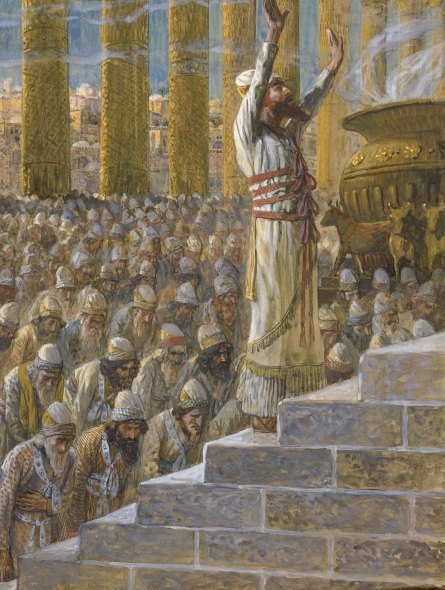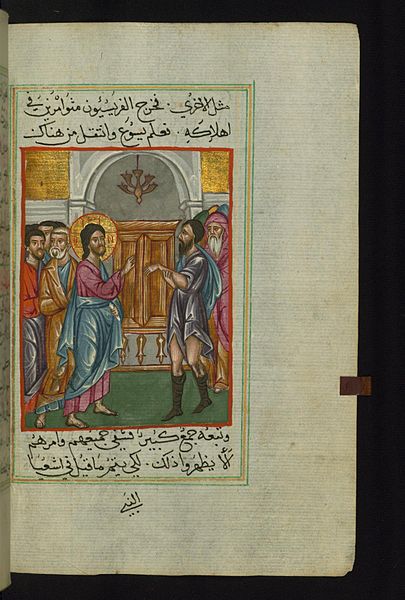重大な質問
[toggle]A Critical Question [/toggle]やめるべきか、やるべきか。そんなシェイクスピアの一節のような質問が、今日の教会に向けられている。
これは単なる便宜上の質問ではない。集団での礼拝は教会の存在意義の中心であり、だからこそ礼拝を中止することは、伝統以上のものを踏みにじるような行為だ。教会の存在に対する脅威にも感じられる。
[toggle]To cancel or not to cancel? That is the Shakespearean question confronting churches today. It is not a question of mere expediency. The gathered worship service is central to the church’s identity, and therefore, cancellation seems to trample on more than tradition. It can feel like a threat to the church’s existence. [/toggle]政府高官や医療の専門家、地域の指導者は、物理的に距離を取ることによって新型コロナ・ウイルスの感染拡大を最小限に抑えられると、市民に呼びかけてきた。指導的立場にある専門家によると、教会は地域感染リスクの高い場所だという。
なぜか。クリスチャンは握手やハグ、頬へのキスをするからだ。ある場所では、カップを共有して飲むことが典礼とされ、あるところでは、あたたかい触れ合いで平和のあいさつを交わす。魂が超自然的に行うことを私たちの体は自然に行う。私たちはつながる。違う世代ともつながる。
[toggle]Government officials, medical experts, and civic leaders have all asked citizens to mitigate the spread of the coronavirus by practicing physical distancing. According to leading experts, churches are one of the top places of community spread. Why? Christians shake hands, embrace one another, and kiss cheeks. Some are liturgically directed to drink from a common cup; others pass the peace with a warm touch. Our bodies do naturally what our souls do supernaturally. We connect. And we do so intergenerationally. [/toggle]教会は何をするべきか。
[toggle]What are churches to do? [/toggle]クリスチャンとして政府に従うべきだとする教え(ローマ13:1~7、1ペトロ2:13~17)は、教会が礼拝を中止するには良い理由だろう。しかし聖書には、この難しい決断をする上で助けとなるもっと別な教えが存在する。
[toggle]Our mandate as Christians to obey governing authorities (Rom. 13:1–7; 1 Pet. 2:13–17) is a good reason for churches to cancel worship services. But there are other Biblical principles that help us embrace this difficult decision. [/toggle]個人的な礼拝を中止することと、礼拝を中止することは同じではない。クリスチャンは礼拝を中止するべきではない。なぜなら神は、私たちが賛美するにふさわしいお方だからだ。
迫害を受けてきた教会の人々は長い間、建物も持たずに礼拝を守ってきた。なぜなら教会とは、そもそも建物のことではなく、そこに集まる人々のことだと彼らは知っていたからだ。
そしてテクノロジーが、今までになかった選択肢をもたらした。もちろんこれは、場所に重要性がないということではない。

ジェームズ・ティソ「ソロモン王によるエルサレム神殿の奉献」
神ご自身がその御名のために神殿の建設を承認した。そうであったにもかかわらず、神殿の奉献に際してソロモンは、神が建物に納められるものではないと謙虚に認めた(列王記上8:27)。
[toggle]Canceling in-person worship services is not the same as canceling worship. Christians should never stop worshiping, because God is worthy of all our praise. Those in the persecuted church have long worshiped God without buildings, because they know that church is not primarily a place but a people. And technology now gives us unprecedented options. This does not mean, of course, that place is unimportant. God himself authorized the building of a temple that would serve as a place where his name would dwell. Even with that decree, however, at the dedication of the temple, Solomon humbly acknowledged that God cannot be consigned to a place (1 Kings 8:27). [/toggle]「ある人たちの習慣に倣(なら)って集会をやめたりせず……」とある(ヘブライ10:25)。教会の扉を閉ざすことは、神の命令に背(そむ)くことなのか。「教会を休む」という習慣は、信仰を無視することや、責任に対する否定的な見解を反映するのかもしれない。
しかしそのようなケースは、パンデミック(世界的な感染拡大)で集団での礼拝を取りやめた教会には当てはまらない。この決定は犠牲的な愛から来るのであって、悪い習慣や礼拝を軽んずる態度からではない。中止の決定は、ほかの人に対する深い責任から来ていることが理解できる。新型コロナ・ウイルスは、私たちがつながりを持っていることや、生活が近い関係にとても影響を受けていることを改めて思い知らせることとなった。
[toggle]The Book of Hebrews warns we should “not forsak[e] our assembling together, as is the habit of some” (Heb. 10:25, NASB). Does closing church doors lead to direct disobedience of God’s command? The habitual practice of “missing church” may reflect a disregard of faith or a dismissive view of corporate responsibilities. Such is not the case for churches that are suspending gathered worship services in a pandemic. This decision comes out of sacrificial love, not from habitual or casual disregard for worship. The amount of angst displayed proves this point. Nor does it arise from a dismissive view of corporate responsibilities. The very reason for canceling is predicated upon a deep sense of responsibility for others. The coronavirus has reminded us that we are so interconnected that our very lives are impacted by proximity. [/toggle]安息日と礼拝
[toggle]Sabbath and Service[/toggle]イエスは、安息日に対する現代的な理解を示した。安息日に弟子が歩きながら麦の穂を摘んだとき、イエスはファリサイ派の人々からの批判にこう答えている。
「安息日は人のためにあるのであって、人が安息日のためにあるのではない。だから、人の子は安息日の主でもある」(マルコ2:27~28)
イエスは後にこの安息日の発言を、奉仕の場に適用した。
[toggle]In the Gospel of Mark, Jesus challenged the contemporary understanding of the Sabbath. When his disciples had picked grain for food on the Sabbath, Jesus responded to the Pharisees’ criticism by saying, “The Sabbath was made for man, not man for the Sabbath. So, the Son of Man is Lord even of the Sabbath” (Mark 2:27–28). Jesus later applied this statement about the Sabbath to a situation of service. [/toggle]
「片手の萎えた人の癒やし」
[toggle]Another time Jesus went into the synagogue, and a man with a shriveled hand was there. Some of them were looking for a reason to accuse Jesus, so they watched him closely to see if he would heal him on the Sabbath. Jesus said to the man with the shriveled hand, “Stand up in front of everyone.” Then Jesus asked them, “Which is lawful on the Sabbath: to do good or to do evil, to save life or to kill?” But they remained silent. He looked around at them in anger and, deeply distressed at their stubborn hearts, said to the man, “Stretch out your hand.” He stretched it out, and his hand was completely restored. (Mark 3:1–5) [/toggle]イエスは会堂に入られた。そこに片手の萎(な)えた人がいた。人々はイエスを訴えようと思って、安息日にその人を癒やされるかどうか、うかがっていた。イエスは手の萎えた人に、「真ん中に立ちなさい」と言われた。そして、人々にこう言われた。「安息日に律法で許されているのは、善を行うことか、悪を行うことか。命を救うことか、殺すことか」。彼らは黙っていた。イエスは怒って彼らを見回し、そのかたくなな心を悲しみながら、その人に、「手を伸ばしなさい」と言われた。伸ばすと、手は元どおりになった。(マルコ3:1~5)
イエスは礼拝者に対し、安息日の大切な側面を再確認させた。それは、社会で弱い立場にあり、さまざまな必要を抱える人のケアだ。イエスは安息日にも癒やした。癒やすことは、安息日にするのに適当だからだ。
[toggle]Jesus reminded the worshipers that a critical dimension of Sabbath involved care for the needy and vulnerable in society. He healed on the Sabbath, because healing is an appropriate thing to do on the Sabbath. [/toggle]安息日を守ることは、礼拝者がただ個人的にしていたことでは決してなく、地域全体で守っていたことだ。つまり安息日は、ほかの人のためでもあったのだ。
申命記5章12~15節では、イスラエルの民に安息日の過ごし方が説明されており、その日は働かず、ほかの人にも働かせてはならないとある。「あなたも、息子も娘も、男女の奴隷も、牛やろばなどのすべての家畜も、町の中にいるあなたの寄留者も同様である」とあるように、働くことから定期的に解放するよう命じるなど、古代世界では驚くべき教えだった。
安息日は、「私は弟の番人でしょうか」(創世記4:9)という古くから何度も繰り返される質問への答えだ。そう! 私たちは自分の影響下にいる人々の繁栄を確保するようにと神に命じられているのだ。
[toggle]Sabbath observance was never just about what worshipers gained personally, but also what they gave communally. Sabbath encompassed the well-being of others. In Deuteronomy 5:12–15, the Israelites were instructed to observe the Sabbath by not working and also not allowing others to work. In the ancient world, it was astounding to be commanded to regularly release your household, servants, animals, and even the immigrant workers and refugees from work. Sabbath answered on a weekly basis the age-old question, “Am I my brother’s keeper?” Yes! We are called to ensure the flourishing of those within our sphere of influence. [/toggle]安息日の主は、新しい力と独自の権威を持って、礼拝と奉仕について預言的関係を応用した。私たちの耳には、その言葉がこだましていないだろうか。
[toggle]With fresh power and unique authority, the Lord of the Sabbath applied the prophetic connection between worship and service. We hear echoes of Isaiah’s declaration of true fasting in acts of justice for the hungry and poor (58:6–7), of Micah’s concern for true sacrifice in expressing mercy (6:6–8), and of Amos’ lyrical entreaty for festivals of worship to be coupled with rivers of righteousness (5:21–24). [/toggle]私が選ぶ断食とは、不正の束縛をほどき、軛(くびき)の横木の縄(なわ)を解いて、虐(しいた)げられた人を自由の身にし、軛の横木をことごとく折ることではないのか。飢えた人にパンを分け与え、家がなく苦しむ人々を家に招くこと、裸の人を見れば服を着せ、自分の肉親を助けることではないのか。(イザヤ58:6~7)
(真の献げ物とは)公正を行い、慈しみを愛し、へりくだって、あなたの神と共に歩むことである。(6:6~8)
(祭りのための献げ物については)公正を水のように、正義を大河のように、尽きることなく流れさせよ。(5:21~24)
安息日は癒やしの機会であるとの教え、礼拝は神をあがめることの一側面であるという教えは、「礼拝をリモートで行うべきか」という疑問に指針を与える。善を行い、害を与えない、命を救い、殺さないというのは合法的だ。物理的に距離を取ることで、教会は致命的なウイルスの蔓延(まんえん)を軽減し、予防的な癒やしの実践をすることとなる。
これは合法的なだけでなく、愛のある行動だ。私たちが物理的に集まることをやめるのは、ウイルスが怖いからではなく、弱者への愛と、神の愛されるこの世を安全に保つためだ。霊的にも肉体的にも癒やしが礼拝の一面であることを覚えておきたい。(後編に続く)
[toggle]The teachings on Sabbath as an occasion of healing and service as an aspect of worship provide guidance for us on the question of whether or not to make religious services remote. It is lawful to do good and not to do harm, to save life and not to kill. Churches for thousands of years all around the world have had to find creative ways to worship. By physical distancing, the church practices preventative healing to mitigate the spread of a deadly virus. This would seem to be not only lawful but loving. We cancel physical gatherings not because we fear a virus but because we love the vulnerable and care for the world God loves. We remember that healing—both spiritual and physical—are aspects of worship. [/toggle]